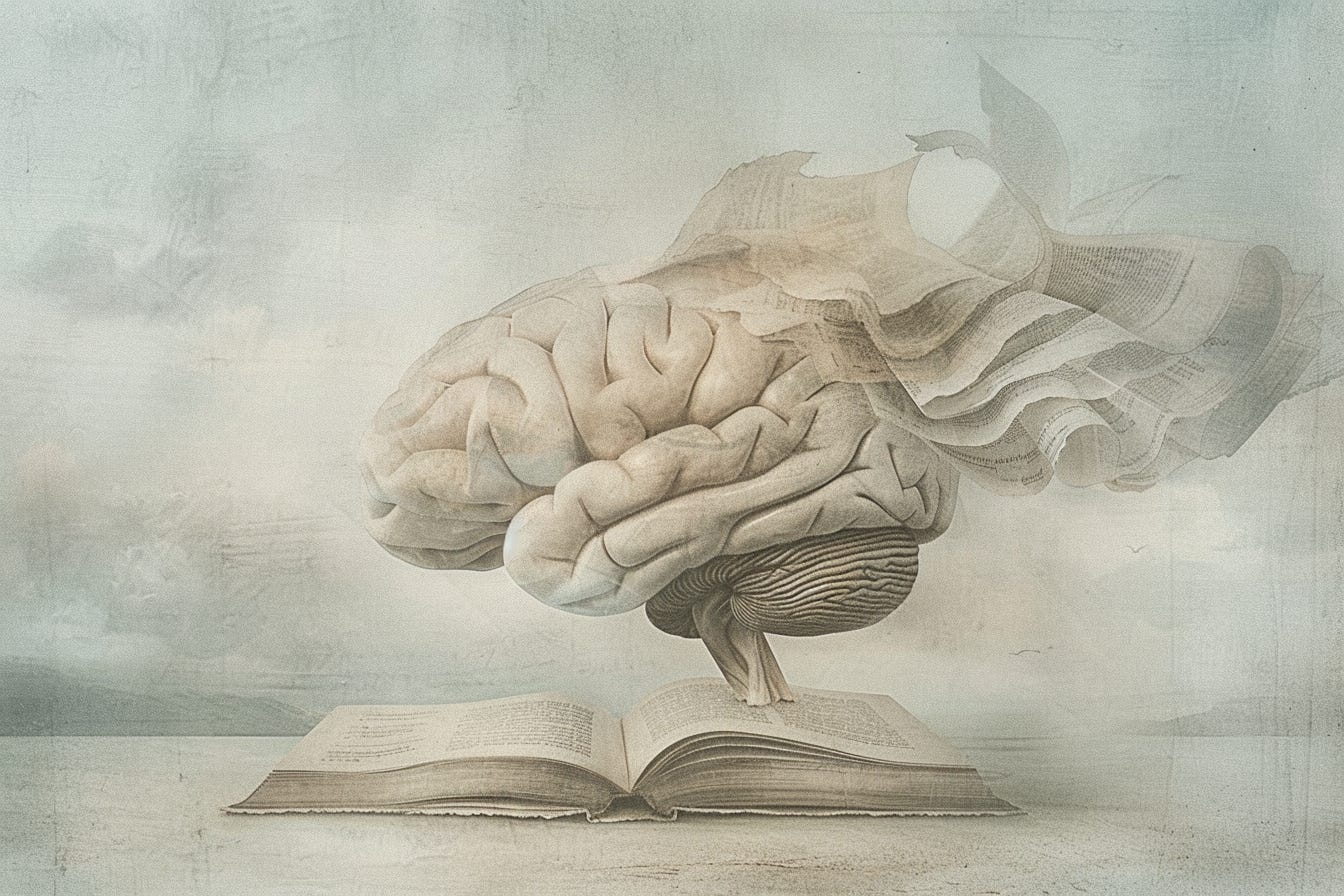Phaiku No. 18
Minded
“Reading is a means of thinking with another person’s mind; it forces you to stretch your own.” — Charles Scribner Jr.
Phaiku No. 18
Minded
slow literary
pages — something in the self
loosens, widens, feels
~ jlynn
Where Narrative Enters the Mind
A visual meditation on how literary fiction reshapes cognition and empathy
Studies in cognitive psychology and neuroscience suggest that all fiction engages the brain’s social imagination—but literary fiction, with its subtler characters and open-ended meanings, asks the reader to infer more.
That sustained effort appears to strengthen empathy and theory-of-mind over time.
It isn’t the marketing label that matters so much as the narrative complexity: the more a story resists easy answers, the more the mind must stretch to inhabit perspectives beyond its own.
“Readers of fiction tend to have better abilities of empathy and theory of mind … engaging with fictional narratives is interesting not just for the prominent place these stories appear in our lives, but also because the experience we undergo while engaging with them is unique … stories thus appear to offer us a deeply-felt simulation of social experience.”
~ Raymond A. Mar, Keith Oatley & Jordan B. Peterson (2009)
How do you imagine a fictional narrative has changed your mind—neurologically or socially?
REFERENCES
1. Literary vs. Popular Fiction & Social Cognition
Calarco, J., et al. (Year). [Study summary on long-form literary fiction and ToM]. York University.
Castano, E. (2024). The complexity of literary vs. popular fiction and social-cognitive processing. SAGE Journals.
Kidd, D. C., & Castano, E. (2013). Reading literary fiction improves theory of mind. Science, 342(6156), 377–380.
Samur, D., et al. (2018). Replication studies on literary fiction and theory of mind. PubMed.
2. Fiction & the Social Brain
Altmann, U., et al. (2014). Fact vs. fiction: How paratext changes neural processing. Oxford University Press / Social Cognitive and Affective Neuroscience.
Mar, R. A., Oatley, K., & Peterson, J. B. (2009). Exploring the link between reading fiction and empathy: Mind-opening books. York University.
Nijhof, A. D., et al. (2015). Neural dynamics of reading literary narratives: Different cognitive entry styles. PLOS ONE.
Oatley, K. (2016). Fiction: Simulation of social worlds. Trends in Cognitive Sciences, via ScienceDirect.
Tamir, D. I., et al. (2015). Reading fiction and reading minds: Overlap in the default-mode network. Proceedings of the National Academy of Sciences. PMC.
3. Genre, Difficulty & Familiarity
Isakoglou, M., et al. (2021). Genre, difficulty, and narrative transportation: Challenging texts engage differently. YMAWS.
Weitin, A. (2024). Bad fiction, good brains: Familiar narrative patterns and neural engagement. PMC / Cognitive Literary Studies.
4. General Theoretical Synthesis
Mar, R. A. (Multiple works). Research on fiction, empathy, and the social imagination. York University.
Oatley, K. & Mar, R. A. (Various). Fiction as social simulation. York University.
Castano, E. (2024). Narrative complexity and mentalizing. SAGE Journals.






